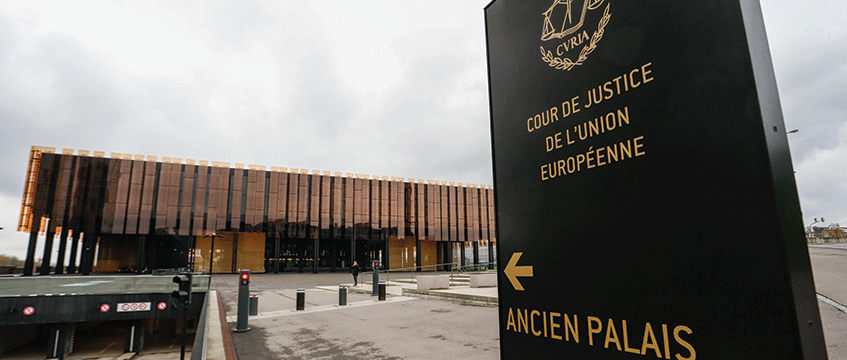Mainly for Students: How legal jurisdictions affect contracts
News
by
Louise O’Donoghue
While the UK remains in the European Union, it is incorporated into a legal system with a common European court – the Court of Justice of the European Union (CJEU) – where a final, binding legal decision may be made in relation to disputes across almost 30 jurisdictions.
If the UK leaves the EU, how will that change?
In simple terms, this will reduce the number of layers of courts with the ability to make legally binding decisions in UK matters to those physically located within the UK jurisdiction.
It is likely in your legal studies that you will encounter an examination of how the court system works. Key to this is the understanding that a court needs to be able to produce binding and enforceable judgments to allow for the meaningful and final resolution of disputes.
While the UK remains in the European Union, it is incorporated into a legal system with a common European court – the Court of Justice of the European Union (CJEU) – where a final, binding legal decision may be made in relation to disputes across almost 30 jurisdictions.
If the UK leaves the EU, how will that change?
In simple terms, this will reduce the number of layers of courts with the ability to make legally binding decisions in UK matters to those physically located within the UK jurisdiction.
It is likely in your legal studies that you will encounter an examination of how the court system works. Key to this is the understanding that a court needs to be able to produce binding and enforceable judgments to allow for the meaningful and final resolution of disputes.
After all, recourse to court is expensive, often acrimonious and time-consuming – but if you are unable to resolve disputes any other way then the benefit of going to court is that it provides resolution.
When the UK leaves the EU, the government has indicated that the UK court of final recourse (that is the court with the power to make a final decision on matters relating the law of that country) will be the Supreme Court in London.
The highest court was previously located within the House of Lords until Tony Blair, in one of his less remembered but most significant actions, introduced the Supreme Court, further separating the UK courts from parliament.
Since legal challenges to government actions have become increasingly common, this can arguably be judged as a wise decision. The recent Supreme Court decision that the prorogation of parliament was unlawful – R (on the application of Miller) v The Prime Minister [2019] UKSC 41 – perhaps offers the best example of the value of separation of powers (between parliament and the judiciary) in the past few centuries.
How might this affect the commercial property market?
Most disputes do not reach the higher courts, but the decisions made in them bind the lower court, through the precedent system. If the highest level changes, this may well lead to a different final decision in majorly influential property cases.
How do you know what jurisdiction a contract is governed by?
It is common for detailed contracts to expressly state (that is, to have a provision written into the document as a clause) that in the event of a legal dispute that dispute will be settled in accordance with the law of, for example, England and Wales.
Where this is not made clear, various rules of jurisdiction apply and, in relation to the built environment, the location of the property in question will generally create a presumption that any legal disputes may be validly settled within that same jurisdiction.
Isn’t all contract law the same?
It is important to remember that, while there are similarities between how most free-market economy jurisdictions deal with commercial laws such as contract, there is no such thing as international or universally applied contract law.
Be careful, as the similarities between the systems can encourage a false sense of security if attempting the unwise task of unravelling a different system of law without expert assistance.
While different jurisdictions approach the law in an often similar manner, each system is different in small and unexpected ways, which can have a substantial effect on the final legal position. Essentially, the same terms will not have the same effect in other legal systems as they do in the UK.
The lease frustration example
Frustration is best described in the law of England and Wales as a mechanism that can discharge parties from their contractual liabilities where circumstances mean that it is no longer possible to continue with those contractual obligations. It is important to note that frustration is not intended to provide relief where a contract becomes more difficult to perform or where the motivation of a party changes.
A typical example of a frustrated contract is one for the performance of a concert in a particular venue which burns to the ground the day before the concert is due to be performed. In such circumstances, it is impossible to fulfil the contract.
Frustration is an attractive solution for those who no longer wish to be held to a less favourable contract, as the financial consequences of ending a contract this way are limited. However, it has never been successfully argued that a lease has been frustrated.
Some readers will be familiar with the dispute between the European Medical Agency (EMA) and its landlord in relation to a lease of Canary Wharf premises – Canary Wharf (BP4) T1 Ltd v European Medicines Agency [2019] EWHC 335 Ch; [2019] EGLR 17 – in which the EMA argued that its lease had been frustrated by the UK vote to leave the EU. The High Court held that it was still possible for the obligations in the lease to be performed.
How would the EMA dispute have been governed by the law of another jurisdiction?
Let us look at what the legal position would have been if the EMA’s lease had been entered into on the basis that it would be governed by, for the sake of example, German law.
In common with many other European countries, Germany has a civil code (see box), a copy of which can be viewed and translated at: www.gesetze-im-internet.de/englisch_bgb/index.html. Within this code, the Germans have incorporated a concept of frustration of contracts, which refers to the “disturbance of the contractual basis”.
This German law considers and gives relief where the contractual motivation of a party has been sufficiently disturbed to the extent that they can no longer achieve their original purpose. It is possible that the EMA would, on these grounds, be released or partially released from its obligations under the lease if a German or European court reviewed the case. French and Dutch contract law also accepts certain unforeseen circumstances as a ground to end or adapt a contract, in total contrast to the English legal position.
What does this tell us?
Considering this perspective, we can see how the UK court decision that the EMA’s lease is not frustrated could be unexpected to an audience accustomed to different laws. It is an example of how, in a different court governed by a different jurisdiction, there would have been made a very different decision.
How do different jurisdictions influence each other?
Another German practice to note in relation to commercial lease renewal is that, in the absence of an equivalent to the Landlord and Tenant Act 1954, options to renew are built into initial lease contracts in commercial practice to manage the renewal process.
Leases made in England and Wales are increasingly incorporating an option to renew – while always possible, and not exactly new, this has only recently become more common commercial practice.
Could this be an indication of the effect of parties from different jurisdictions working together? Perhaps a trend started by the recent increase in German-based retailers taking up leases in the UK?
The key lesson here is that while our jurisdictions stand separately, they certainly influence each other in practice.
How will the UK enforce decisions in other jurisdictions?
As the UK leaves the EU, agreements in relation to the mutual enforcement of legal judgments will change. As many have found in legal disputes where parties cross jurisdictions, even once a judgment is obtained it can be difficult to enforce.
The enforcement arrangements the UK makes with the EU are another item on the long list in the most commercially significant international negotiations to take place in some time.
These are interesting times for students to get to grips with how legal systems work and observe constitutional law in action. As newcomers to the industry, it may be that these changes offer an opportunity for those who take the initiative to become fluent in the new systems of work these negotiations produce.
What is a civil code system of law?
A civil code is a methodological collection of rules of law, almost like a legal guide, which provides a set of detailed rules creating a system to regulate core areas of private law, such as contract.
In a common law system, which operates in the UK, case law (the judgments made by courts) forms part of the law and is paired in legal effect with Acts of parliament, although an Act remains the source of law with most authority.
This does not happen in a civil code system. Instead, in many European countries, civil codes exist alone in relation to the civil law matters which dominate commercial transactions. These civil codes are much more exhaustive in the level of detail provided about how to transact.
The possibility of a unified European civil code has been proposed, but one does not currently exist.
Louise O’Donoghue is a property lawyer and academic at Nottingham Trent University. Paul Collins is a senior lecturer at Nottingham Trent University. He welcomes suggestions for the column and can be contacted at paul.collins@ntu.ac.uk











